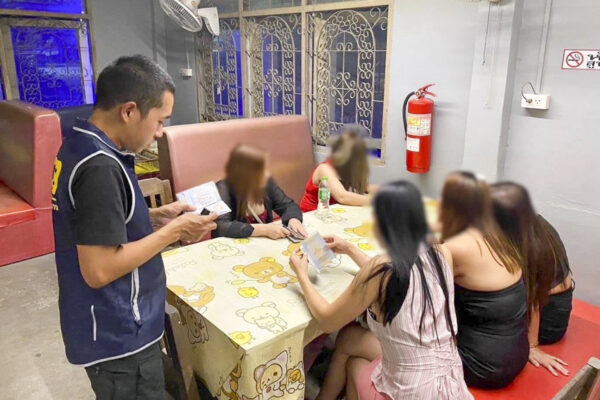The Arakan Army, or AA, is continuing their sweep across Rakhine, furthering the military gains of the ethnic Three Brotherhood Alliance, of which it is a member, in Shan state. While the capture of nine towns, with a tenth in southern Chin state, is another humiliating defeat for the Burmese military, it also sets the scene for a very messy political discussion moving forward. Myanmar’s military continues to be on their back feet. The Kachin Independence Army continues to make gains, recently securing control over a major trade route with China, after seizing the last of the military camps along the Bhamo-Myitkyina highway. The once staunchly pro-junta border guards forces in Kayin state are now hedging their bets and putting some distance between themselves and Naypyidaw. Meanwhile, the junta’s announced counter-offensive out of Lashio against the Ta’ang National Liberation Army and Myanmar National Democratic Alliance Army – the other two members of the Three Brotherhood Alliance – in northern Shan State has not materialized. But it’s in Rakhine where the military has been handed its most significant territorial defeats. The AA has captured six of Rakhine’s 17 townships and several smaller towns since launching an offensive on Nov. 13, 2023, with ongoing offensives against several others. As of early April, the AA had captured some 170 junta camps and posts, as well as several larger bases, battalion headquarters, and training facilities. Arakan Army soldiers stand with an artillery piece after capturing the Ta Ron Aing base in Chin state from junta forces, Dec. 4, 2023. (AA Info Desk) The capital of Sittwe is surrounded, and many civil servants have been withdrawn. The Chinese special economic zone in Kyaukphyu is on the verge of falling, prompting the United League of Arakan, the AA’s political wing, to publicly pledge to protect all foreign direct investment that benefits Rakhine and “ensure the smooth continuation of their operations.” At present, China’s US$8 billion investment, which includes their oil and gas pipelines and a proposed deepwater port with rail and road links, can only be accessed by sea. As a recent International Institute for Strategic Studies report concluded: “But no matter the final outcome, the AA’s sweeping gains are already enough to enable self-rule over a large portion of the Rakhine homeland and to reshape the wider balance of power in Myanmar.” Little leverage over AA in Rakhine On April 1, 2024, China’s special representative to Myanmar, Deng Xijun, met with junta chief Senior Gen. Min Aung Hlaing in Naypyidaw to try to broker a ceasefire. While the Chinese-brokered ceasefire between the Three Brotherhood Alliance and the military regime is tenuously holding in northern Shan state, the AA refuses to be bound by it in Rakhine. China has less leverage over the AA, which has shown no interest in halting their offensive. The AA has stated their intention to capture the entire state, not just their traditional heartland in the north, though it’s not clear that they have the manpower and resources to do so. Over-reach could spread their forces too thin. The AA is in the midst of an offensive in Ann township, which is not just the headquarters of the military’s Western Command, but the key junction on the road to Magwe region. The loss of Ann would make overland resupply to northern and central Rakhine extremely difficult. Overland supply could only come in through the highway from Bago region’s Pyay township in the south. The military has responded in typical fashion, with more indiscriminate air and long-range artillery strikes against unarmed civilians. In a two-day period in early April, six civilians were killed and 16 were wounded. RFA Burmese reported that some 79 Rohingya civilians have been killed and 127 more have been wounded in the past four months. The junta has commenced implementation of its national plan to conscript some 5,000 people a month, including amongst ethnic Rohingya in Rakhine, despite the assassination of local administrators. People who appear to be Rohingya Muslims in Rakhine state undergo weapons training by junta military personnel on March 10, 2024. (Image from citizen journalist video) This is a perverse irony after the military waged an ethnic cleansing campaign that drove 1 million ethnic Rohingya, whom they refer to as “illegal Bengalis,” into Bangladesh, and kept many others in concentration camps. Poorly armed and trained conscripts have limited military utility, indicating the military’s desperation for manpower. Role of Rohingya conscripts But the Rohingya conscripts play a much more important role in fomenting political strife within the opposition camp. The Buddhist-dominated Arakan Army has a tense relationship with the Rohingya population. It has tenuously accepted the shadow National Unity Government’s position that the Rohingya are legal citizens and that they should be returned to the country from Bangladesh in an orderly fashion. There have been a number of reports that the military is reaching out to the Arakan Resistance Solidarity Army, or ARSA, whose misguided raids on border posts and police stations in 2017 were the casus belli for the military’s ethnic cleansing campaign. Since being driven into Bangladesh, ARSA’s primary activities have been to secure control over the refugee camps and eliminate rivals within the Rohingya community; they have not participated in the armed rebellion. That the military believes that they can recruit ARSA as a proxy against the AA seems preposterous. The AA is neither willing to share any political power in Rakhine nor countenance the presence of any other armed actors. So there is a perverse logic to the military’s overtures to ARSA, which is searching for relevance. With mounting battlefield losses, the best that the military can do is to strike up ethnic and sectarian tensions. This should come as no surprise: stoking communal tensions has always been a key party of their strategy. An airstrike by Myanmar junta forces destroyed houses in Minbya township’s Myit Nar village in Rakhine state on April 3, 2024. (Arakan Princess Media) Indeed, the United Nations’ Independent Investigative Mechanism for Myanmar, which was established following…



